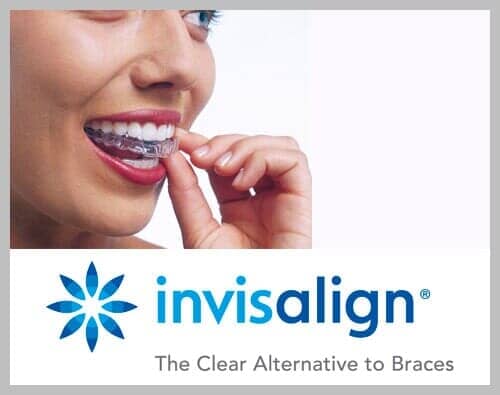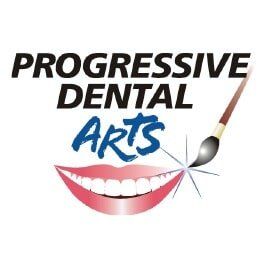
MORGAN DORSEY, D.M.D.
Originally from North Wilmington, Dr. Morgan Dorsey is excited to be back in Delaware and ready to provide high quality, comfortable care to all patients. Dr. Dorsey was an active member of the Wilmington Friends School community where she graduated after twelve years. Dr.Dorsey went on to Swarthmore College where she earned a BA in Biology and enjoyed being a Teaching Assistant in entry level biology classes. She pursued teaching after college as a HealthCorps, Inc. Coordinator, mentoring students at Thomas McKean High School about all aspect of healthy living and wellness.
Dr. Dorsey received her dental education at Temple University Kornberg School of Dentistry. She expanded her education at Abington Jefferson Hospital's General Practice Residency program. Dr. Dorsey is a member of the American Dental Association, the Academy of General Dentistry, the National Dental Association.
ADVANCED PROCEDURES
CROWNS
Crowns are full coverage restorations that are used to cover a tooth that is likely to break, or is too broken down to be restored with a filling. They are most commonly done after root canal treatment, or when a large filling wears out. The larger the hole made by a cavity that has to be treated, the more likely a crown will be needed. Even after a filling is put in a large cavity, a tooth is more likely to break. Keep in mind that the jaw muscles are the strongest in the human body. Teeth are subjected to tremendous pressures. Crowns ride over the weakened tooth, providing strength and protecting the tooth against breakage. A broken or cracked tooth is a far more serious matter and much more difficult to treat. Crowns prevent this, as well as making for a nice smile.

DENTURES
There are different types of dentures, but they share their common function. They replace teeth that have become loose or been lost due to bone loss. When bone loss around the roots of teeth is great enough to loosen them or let them fall out, it's time for dentures. Relax. No one enjoys losing their natural teeth, but you can still eat and talk regularly.
The entire mouth is examined and a determination is made as to which teeth will have to be removed, and which will remain. The loose teeth are then extracted. Dentures are fitted to go over or around whatever teeth remain in the mouth, depending on the type. There is an adjustment period after dentures are placed in the mouth, and it can take some getting used to. But once accustomed to the dentures, all the normal functionality and appearance return and one just carries on as usual. Often implants can used to further stabilize the dentures.
IMPLANTS
A dental implant is an option to replace a missing tooth. This permanent solution has the advantages over bridge work that it does not stress the surrounding teeth for support, and, should the tooth wear out, another can simply be replaced on the shaft.
Implants can also be used as support as part of an implant bridge. This is an alternative to partial dentures, and has several advantages. First, there is no adjustment period to acclimatize the patient who, once the work is done, only feels teeth, not metal supports intruding into the mouth. Second, this slows the bone loss occasioned by missing teeth. Third, there is no discomfort or difficulty in eating. And, best of all, of course, they don't have to be taken out all the time.
ROOT CANAL TREATMENT
Root canal treatment (also referred to as root canal therapy or endodontic therapy) is made necessary when a cavity reaches all the way to the root of a tooth. (Regular cleanings and checkups prevent and detect problems early) Sometimes deep restorations or trauma to a tooth may cause the nerve to be damaged to the point it needs root canal therapy, also. Once this occurs the pulp becomes infected, and can even extend through the root tip and begin to eat away at the surrounding bone (this is an abscess). By the time the pulp is infected it must be treated, and cannot heal on its own. It can even weaken the entire immune system. This is dangerous, not to mention very painful. Symptoms that the pulp has become infected may include sensitivity to hot/cold or sweets, pain, swelling, pain to biting or pressure, and a bad taste in the mouth. Sometimes, however, no symptoms are apparent and the person is unaware of any problem until a checkup.
A root canal is then performed to clean out the infected tooth pulp, and disinfect the canals of the tooth. The only other treatment would be to extract the tooth. Once the infection is resolved, the canal(s) are filled in to prevent any further infection. Usually a core build-up and crown is recommended for restoring a tooth that has had root canal therapy.
BRIDGES
Bridges are an option for filling the space created by a missing tooth. It is formed to look like the missing tooth, and it takes its place in the mouth. The sides of a bridge use the two surrounding teeth for support, hence the name. A bridge replaces the missing tooth, both functionally and cosmetically. Bridge work is as much an art as it is an exact science. The materials used may be gold alloys, porcelain bonded to metal alloy, or all ceramic material. The choice of material depends on requirements for strength, wear, and/or esthetics.
It is important that a missing tooth be replaced as soon as possible for several reasons. If not treated the teeth surrounding the gap begin to shift inward, creating a whole chain reaction of bad things. Teeth use their neighbors for support, and, with one missing, they start to "fall." As this worsens the bite changes in response to the pressure. This can eventually result in problems with the entire jaw, e.g. TMJ. The surrounding teeth deteriorate and it is just a matter of time before they, too, are lost. Gum disease becomes a serious problem, with the difficulty of treatment increasing as the neglect continues.
INVISALIGN ®

The Invisalign® technique employs the latest technology and techniques in dentistry to move your teeth quickly and safely with clear adult aligner trays. These trays are smooth and comfortable. Invisalign® is a great way to achieve a beautiful smile in a short period of time!
BROWSE OUR WEBSITE
Content, including images, displayed on this website is protected by copyright laws. Downloading, republication, retransmission or reproduction of content on this website is strictly prohibited. Terms of Use
| Privacy Policy

